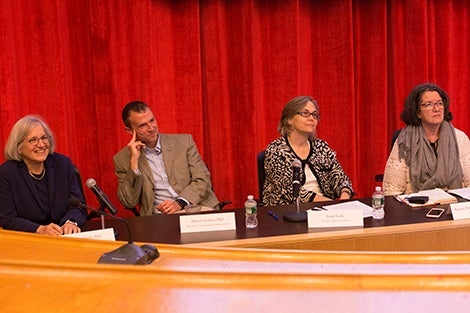Daniel Neafsey's laboratory studies the evolutionary genomics of malaria parasites and mosquito vectors. Prior to becoming a faculty member at Harvard, he led a research group at the Broad Institute, where he retains a role as Associate Director of the Broad Institute's Genomic Center for Infectious Disease. He is excited by the potential for new technology and data to turn the tide against diseases like malaria.
Neafsey's current projects involve the application of comparative genomic and population genetic analyses to Plasmodium malaria parasites and Anopheles mosquitoes to study population structure, natural selection, and genomic factors underlying parasite and vector phenotypes that impact public health. Neafsey's interests also include the use of pathogen polymorphism data to inform vaccine design and understand vaccine efficacy, analysis of drug resistance mechanisms and evolution, the use of clinical genotyping data to interpret disease transmission dynamics, and the development of new genomic protocols and informatics tools to address key questions in infectious disease and global health.
BA, 6/1998, Biology
Loyola University Chicago
Ph.D., 6/2004, Biology
Harvard University
